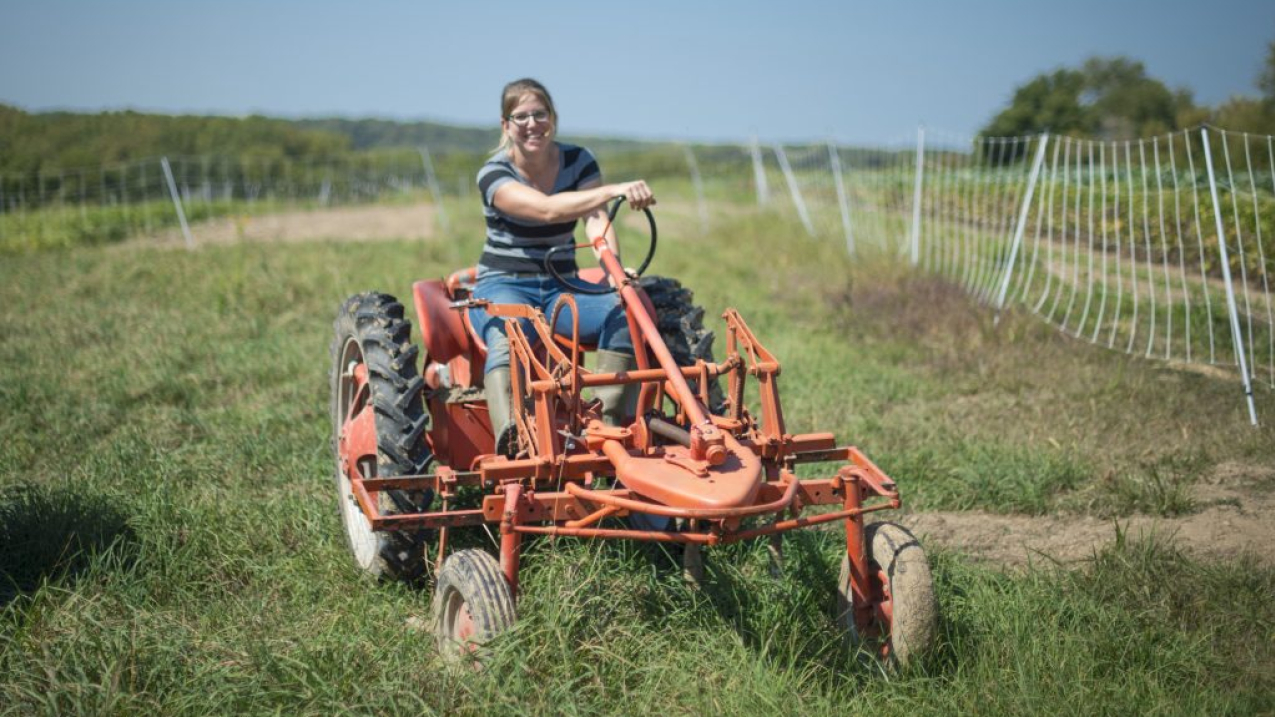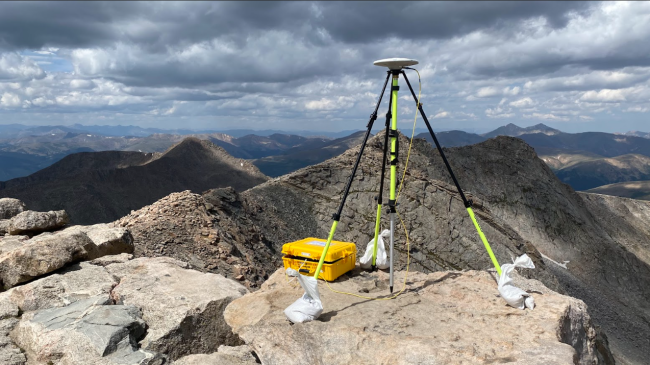Inflation Reduction Act will support NOAA effort to build climate adaptation in the Central Midwest

Kate Edwards uses a vintage tractor on her vegetable farm in Johnson County, Iowa. (Image credit: USDA)
Today, the Department of Commerce and NOAA announced that $6 million in funding over five years has been awarded to the University of Iowa and its partners to expand collaborative research and community engagement projects for climate adaptation planning and action.
The initiative, which targets the Central Midwest states of Iowa, Missouri, Kansas and Nebraska, will add a 13th regional team to the NOAA Climate Adaptation Partnerships (CAP)/ Regional Integrated Sciences and Assessments (RISA) network. This announcement is part of President Biden’s Investing in America agenda, and is funded by the Inflation Reduction Act, the largest climate investment in history. The announcement comes as the Biden-Harris Administration hosts the first-ever White House Climate Resilience Summit.
“This initiative will bolster those working on the frontlines of climate resilience in the Central Midwest,” said U.S. Secretary of Commerce Gina Raimondo. “Under President Biden’s Investing in America agenda, we are giving local communities the tools they need to respond to the growing impacts of the climate crisis and become more competitive in the 21st century economy.”
While centered at the University of Iowa, the Central Midwest team will include partner institutions across the region, including NOAA’s High Plains Regional Climate Center, Iowa State University, Missouri University of Science and Technology, the University of Kansas, the University of Nebraska-Lincoln, the Nebraska Indian Community College, the Nebraska State Climate Office, the Sac & Fox Nation, the Center for Rural Affairs, the USDA Midwest Climate Hub, Proteus and the Women, Food and Agriculture Network. Together, they will co-produce strategies and tools to support sustainable and resilient decision-making driven by the needs and knowledge of local stakeholders.
Among other areas, the team will address two underrepresented, underserved, yet important groups in the region: (1) tribal nations; and (2) women who own farmland. These communities support holistic environmental resilience in their communities, and have access to significant amounts of land near the headwaters of regional watersheds, making their participation critical to the success of the region’s adaptation efforts.
The new Midwest team will leverage existing relationships and experiences with these groups to learn from and collaborate with each other. The team will use techniques such as environmental monitoring, vulnerability assessments and storytelling that acquires institutional, historic and cultural knowledge.
"NOAA’s Climate Adaptation Partnerships teams bridge the gap between decision-makers and researchers in order to support collaborative, equitable and workable adaptation solutions to complex climate risks,” said Jainey K. Bavishi, assistant secretary of commerce for oceans and atmosphere and deputy NOAA administrator. “This exciting IRA investment will expand our support in the Central Midwest, particularly to the region’s frontline communities most affected by climate hazards."
The NOAA CAP/RISA program is an applied research and engagement program that expands society’s regional capacity to adapt to climate impacts in the U.S. The program supports sustained, collaborative relationships that help communities build lasting and equitable climate resilience. Funded by five-year cooperative agreements with NOAA, the work is accomplished by teams of research institutions, nonprofit organizations, and state/local/tribal governments in multi-state regions.
Please visit NOAA’s Bipartisan Infrastructure Law and Inflation Reduction Act websites to learn about current and future funding opportunities.
Media contact
Monica Allen, monica.allen@noaa.gov, (202) 379-6693


